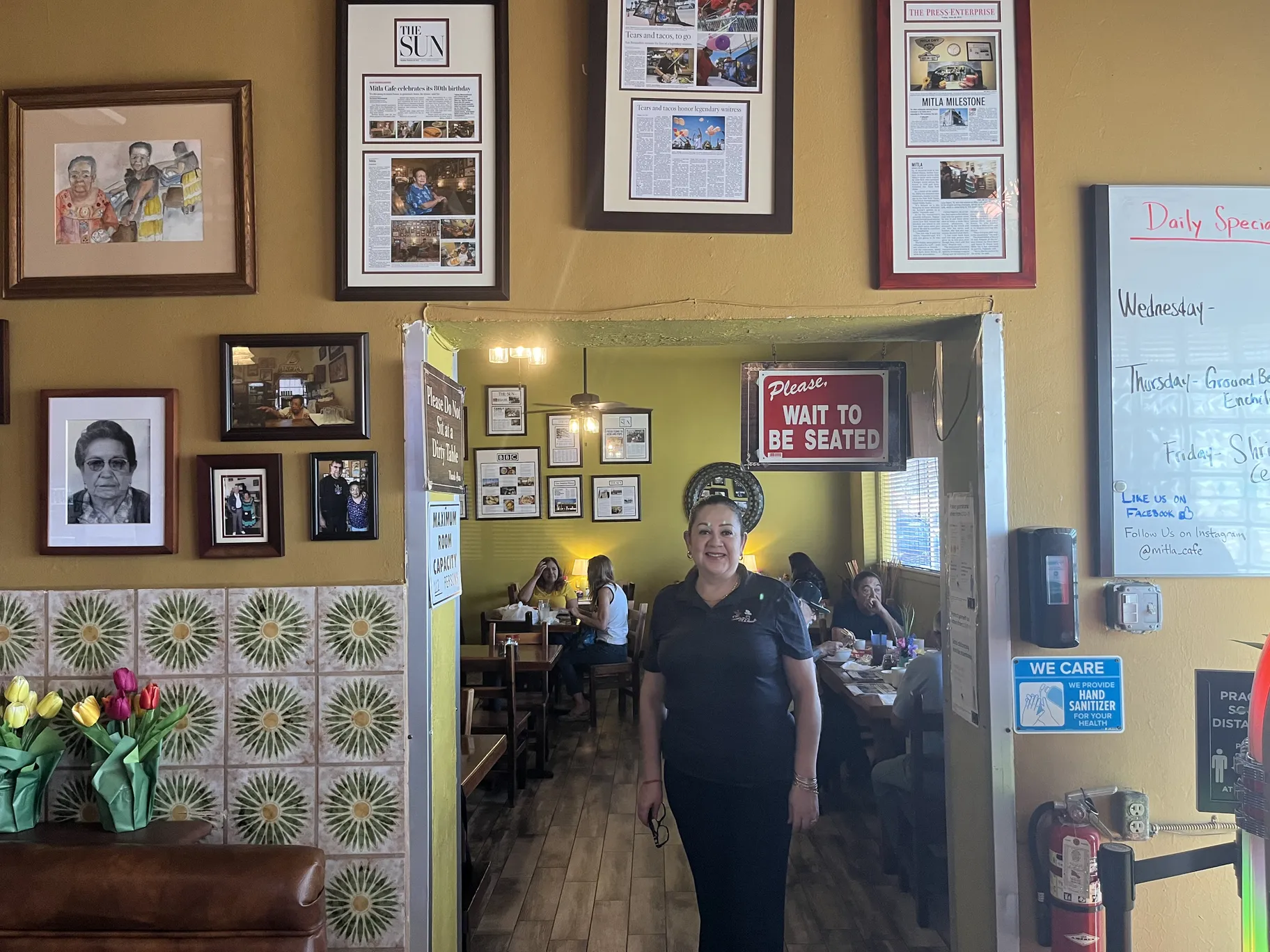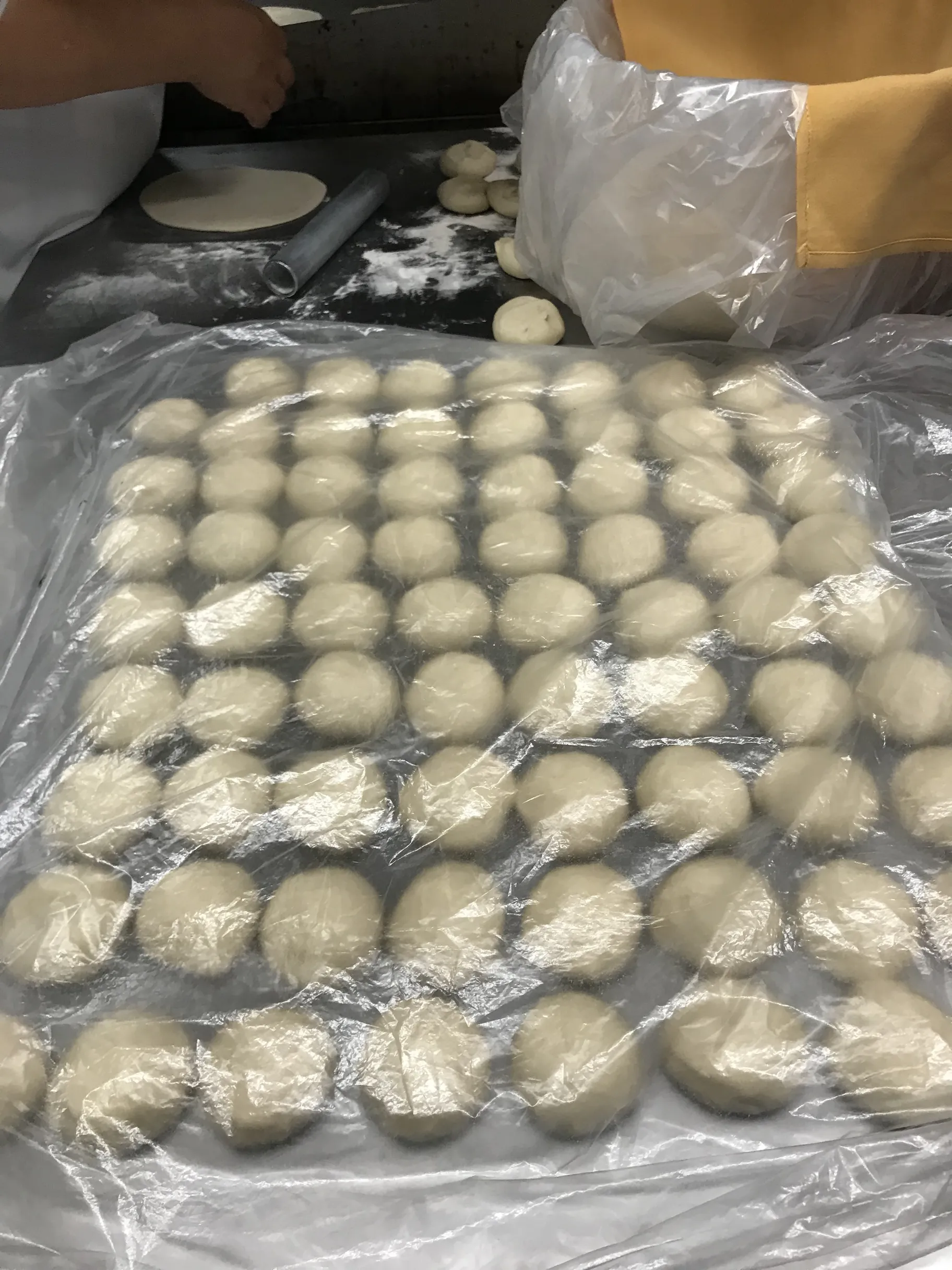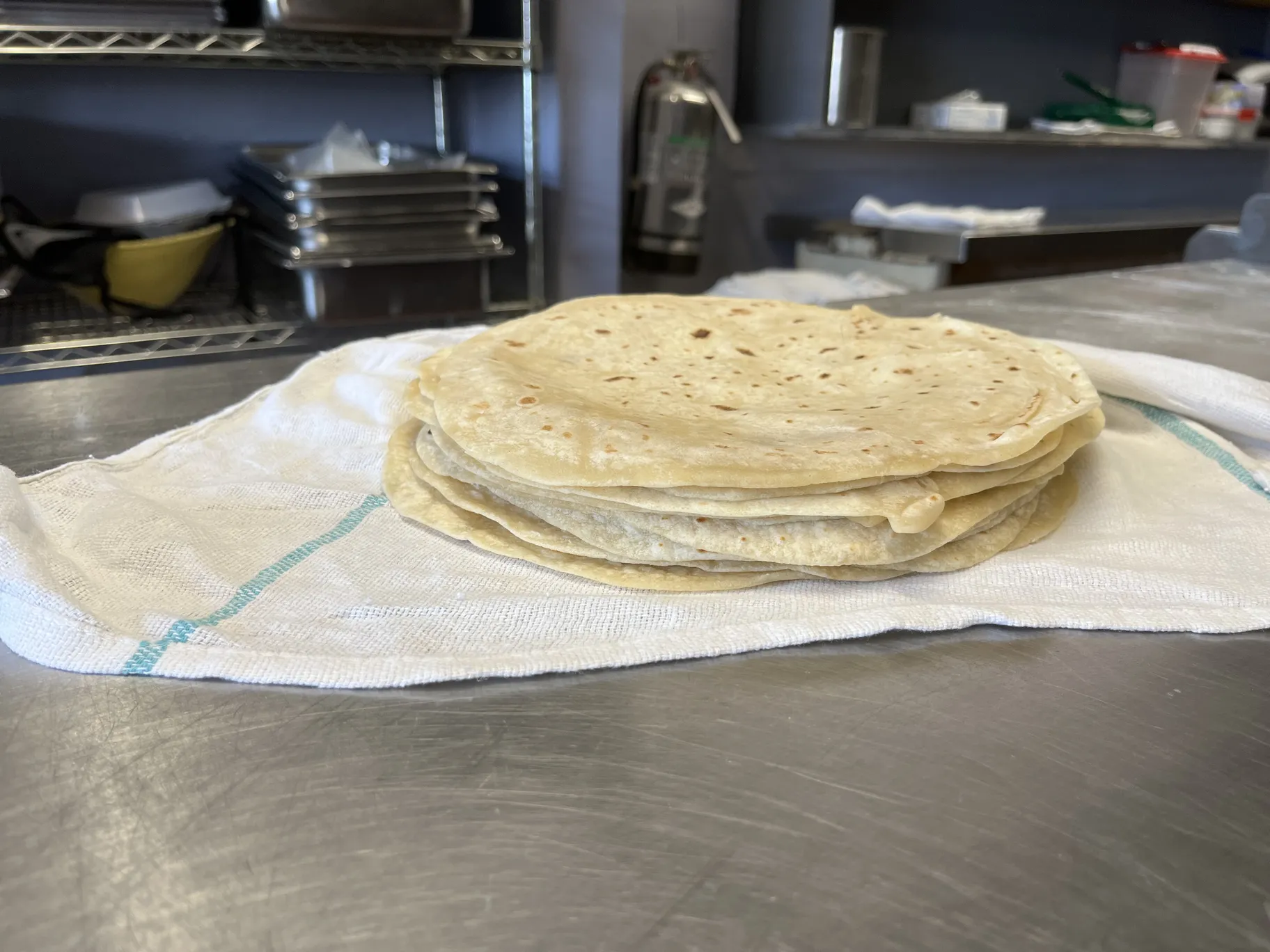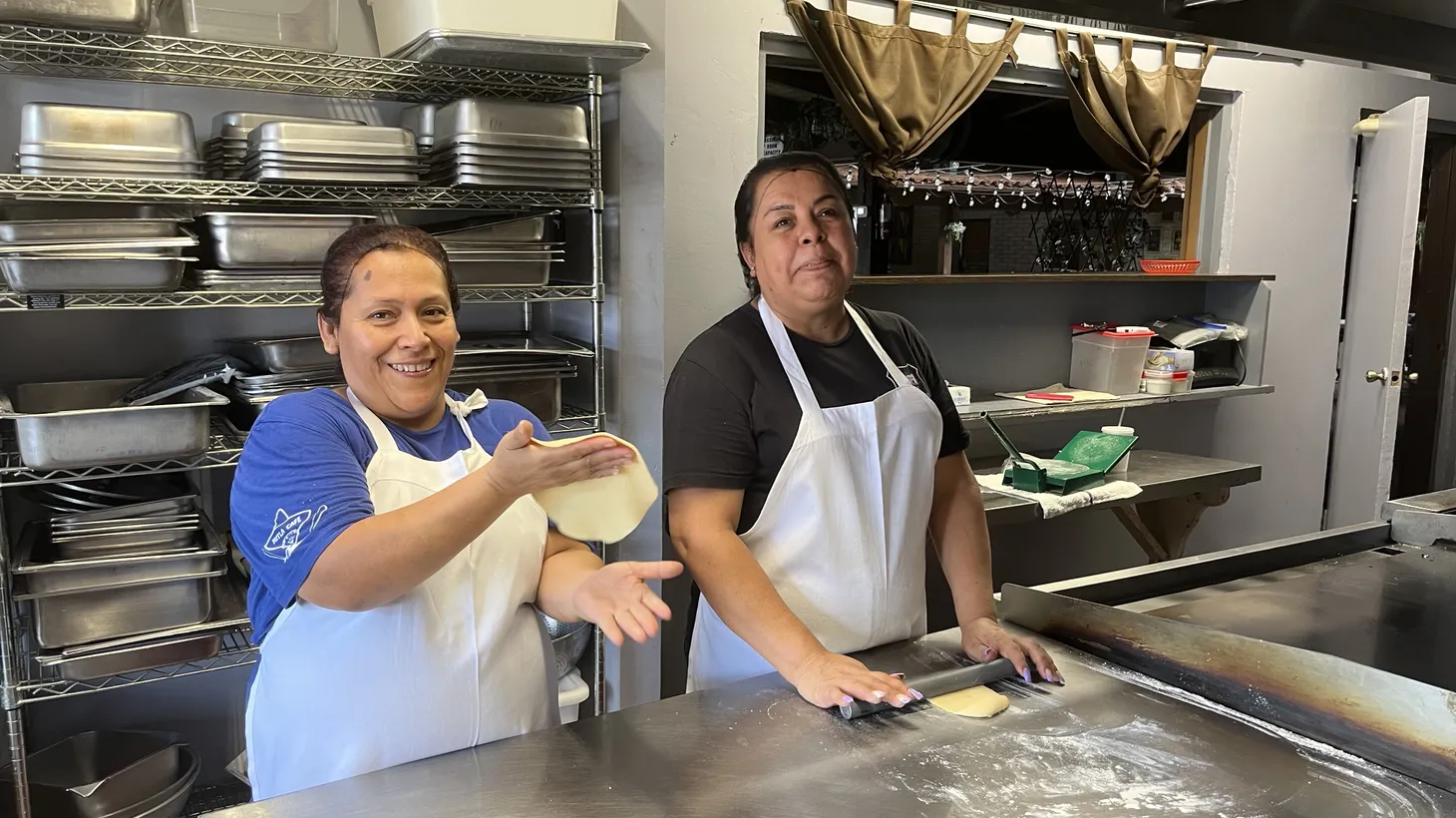It's 6 a.m. and already the clinks of steel rolling pins mix with the hiss of a flat top grill through the window of Mitla Cafe, the Inland Empire's oldest Mexican restaurant. It's tortilla-making time.
The large diner is most famous nationally as the restaurant that taught Glen Bell, the founder of Taco Bell fame, how to make hard-shell tacos, which he started to sell across the street in a building that still exists. But in San Bernardino's Westside, Mitla is also where generations of families have enjoyed breakfast, lunch and dinner for 86 years, and flock early in the morning to guarantee they can get some thick, pillowy flour tortillas speckled with golden brown spots before these beauties sell out.
"Some customers will ask if we have flour tortillas before they even order," said Mitla co-owner Michael Montaño, the third generation of his family to run the diner.
Mitla's contributions to Mexican food in the United States is undeniable, from those hard-shell tacos that remain a best-seller to all of the glorious combo plates. But whatever the item, it's those freshly made tortillas — corn and flour — that are Mitla's foundation, helmed by an unbroken chain of tortilleras that learned from each other.

Patricia Martinez, has been a server for 38 years and made tortillas for twenty of those years at Mitla Cafe, the Inland Empire's oldest Mexican restaurant. Photo courtesy of Mitla Cafe
It started with Mitla Cafe founder Lucia Rodriguez, who opened her place in 1937 off what was then Route 66 and today is Mount Vernon Avenue. She taught her three daughters — Helen, Vera and Theresa — and her daughter-in-law, Irene Montaño, who is Michael's mother. In 1950, Lucy Reyes began to work at Mitla and eventually took over tortilla duties along with Mercy Aguirre. Together, they collectively worked at Mitla for 101 years, with Reyes retiring in 2018 after 68 years.
Reyes, in turn, taught Mitla's tortilla secrets to Patricia Martinez, who's been a server for 38 years and has made tortillas for 20.
"If you were a waitress and you worked in the morning, you were making tortillas," says Martinez, taking a moment to pause on a busy weekend inside Mitla's banquet room.
The newest generation of Mitla tortilleras are Margarita Nepomuceno and Veronica De Paz, who work in tandem and make them just like their predecessors, namely because Martinez taught them.

These doughy orbs of masa wait to be transformed into buttery flour tortillas at Mitla Cafe. Photo courtesy of Mitla Cafe
Nepomuceno, who has worked at Mitla Cafe for eight years, takes each ball of flour masa dough and rolls it out by hand into a soft round. With a steel roller and just the right amount of pressure, she flattens the balls into an imperfect disk before placing them on the griddle. Once finished, she adds each tortilla to a steaming stack to her right. Their flour tortillas are buttery, chewy and ready to be wrapped around everything.
The 52-year-old Oaxaca native says it's not uncommon for people to stop for a peek inside the kitchen window that faces 6th Street. "They always tell us how good the tortillas are," Nepomuceno said. "It's true, food is much better to eat with warm tortillas."
Making corn tortillas by hand and in-house is relatively new, and just in time for KCRW and Gustavo's Great Tortilla Tournament, where Mitla has landed in the Suave 16 for three years in a row. It returns this year as a #2 seed. De Paz uses a hand press on the corn masa and estimates she makes 46 dozen corn tortillas for the week. That's 552 tortillas, if you're counting.

A stack of freshly made tortillas at Mitla Cafe. Photo courtesy of Mitla Cafe
"Our tortillas don't have any preservatives," said the 50-year-old De Paz. "In stores there's a lot of tortillas with preservatives so that they last longer, but here in the restaurant, the tortillas are freshly made, all natural and delicious. I personally enjoy both."
Nepomuceno and De Paz feel proud to continue Mitla's legacy.
"Nowadays it seems like they have machines everywhere to make tortillas," Nepomuceno said. "But not here."
For Montaño, a tortilla is much more than just a vessel to eat.
"It's my childhood. Now, it feels like I'm looking in a mirror when I watch my oldest son get a flour tortilla with two hands and take a big whiff of it before he takes a bite," he said with a smile. "I remember being a kid doing the same thing –– and I didn't teach him to do that –– it's just innate."

